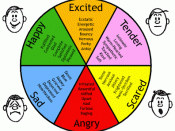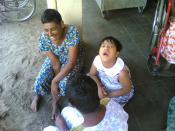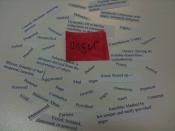Abstract
This research paper discusses the types of conflicts one can encounter inside of a work team. These conflicts can take on many forms; however, this research explores two types of conflict emotional and cognitive. Although the emphasis is on conflict, the differences lie in their approach and not in the likelihood of their manifestation. It is inevitable that all teams will encounter conflict. As such, transformations can take place with planning, personal insight, priorities and established common goals. Through articles, educational research and course materials, which contribute to the psychological aspects of conflict and its attendant resolution, findings show transformation is a key part of successful teams. However obvious the logical resolution may appear to be, it is not altogether achieved or, sadly, even deemed possible. Team failure may simply be rooted in pure emotion and unresolved past trauma; consequently, affecting the success of the teams future. Ultimately, if transformations are not understood and, more importantly, practiced, could it compromise the integrity of the team process, up to and including, complete team failure in reaching defined goals, projects and/or tasks? It is probable.
Furthermore, to ensure effective measures of success, team dynamics should be considered during the origination of the team and not as an afterthought brought on by conflict. Research proves time and again, conflict should not be avoided, cannot be eliminated, but rather, managed through transformation and planning.
Introduction
Human behavior has been on the forefront of each persons mind when confronted with conflict, its resolution or management. Each individual will handle conflict in a different way. Our approached may be altered by our paradigm or approach to conflict. Some people view conflict as disagreement, inconsistent worldviews, feelings or behaviors. Lines can be drawn in a defensive manner if an individual believes they are being challenged in...



Good essay
Good sub-categories of the team concept. Could have cited paper better though.
0 out of 0 people found this comment useful.